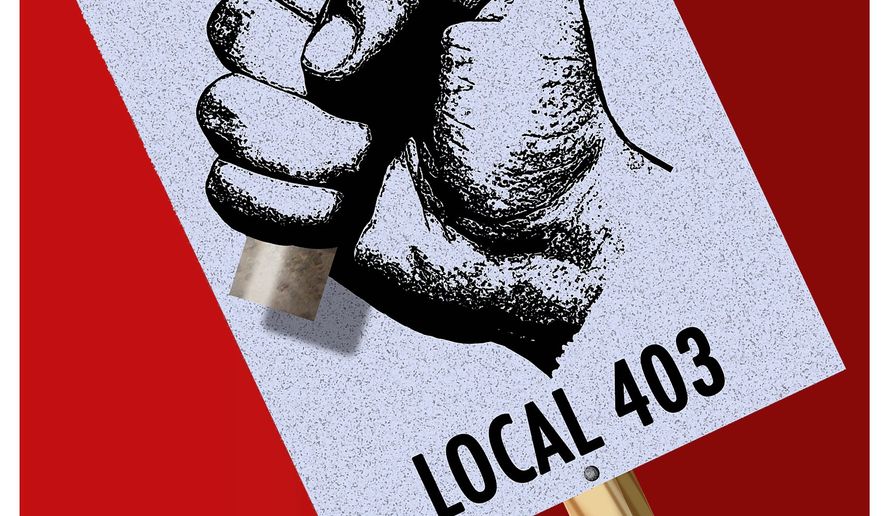OPINION:
On July 20, U.S. District Judge Michael Baylson sentenced Joseph Dougherty, the former boss of Philadelphia-based Local 401 of the Ironworkers union, to 19 years in prison for “overseeing a years-long campaign of sabotage, arson, and intimidation,” as Philadelphia Inquirer staff writer Jeremy Roebuck put it. Mr. Dougherty’s targets were nonunion construction employees and employers.
Prior to Mr. Dougherty’s trial and conviction early this year, 11 of his paid subordinates and militant followers pled guilty to assault, arson and vandalism aimed at forcing independent employees and firms into line.
At trial, the jury listened to testimony from several of Mr. Dougherty’s former lieutenants, as well as multiple wiretapped phone calls, including one in which Dougherty asserted that “[y]ou should be able to do whatever you want” to people who dare to operate union-free “and it should be legal.”
In pronouncing the former Local 401 “business manager’s” sentence, Judge Baylson likened him to Lady Macbeth for relying on a team of henchmen to do his dirty work. Mr. Dougherty’s reign “led to a lot of damage,” declared the judge. “It led to a lot of crimes. It continued the bad reputation Philadelphia has for tolerating union violence.”
Unfortunately, the public reactions of several local union bigwigs to the Dougherty conviction and sentencing have further blackened the already tarnished reputation of the City of Brotherly Love.
In an interview just last month with the Inquirer’s Jane M. Von Bergen, Patrick Eiding, the head of the Philadelphia AFL-CIO, called Mr. Dougherty a “good friend” and lauded him for supposedly having “spent 45 years helping working people.” For his part, Patrick Gillespie, the head of Philadelphia’s Building and Construction Trades Council, told Ms. Von Bergen that he wanted to “support Joe, … never mind the consequences.”
Most vociferous of all in his praise for Mr. Dougherty was Jim Moran, the former head of PhilaPOSH, a union front group putatively dedicated to improving worker safety.
Mr. Moran called Mr. Dougherty a “giver” and suggested the prosecution of Local 401 officers and militants by the U.S. Justice Department was nothing but a “way to attack unions.”
The evidence furnished to the jury of Mr. Dougherty’s guilt is ample and convincing, as Judge Baylson demonstrated in his ruling against a post-trial motion by the defendant’s attorneys for an acquittal or a new trial.
Consequently, when a powerful union boss like Mr. Eiding is quoted as saying that he isn’t convinced Dougherty is a racketeer, what he’s really suggesting is those who orchestrate violence against union-free employees and employers should be immune from legal accountability.
Unfortunately, the U.S. Supreme Court must bear a significant part of the blame for the fact that many union officials, and not just those who are personally culpable of crimes, believe Big Labor should be able to get away with thuggery.
In its 1973 ruling in U.S. v. Enmons, a bitterly divided High Court found that threats, vandalism and violence perpetrated to secure “legitimate” union objectives may not be prosecuted under the federal Hobbs Anti-Extortion Act.
Judge Baylson ruled in July 2014 that the Enmons loophole does not apply to the likes of the Local 401 defendants. They were accused of perpetrating extortionate violence and threats against independent employees and nonunion business owners who weren’t legally required to negotiate with union bosses over anything. Enmons only applies when a union contract is already in place, Judge Baylson explained.
Union bosses like Mr. Dougherty and his sympathizers want to widen the Enmons loophole. But proponents of justice and equal protection under the law should want it closed immediately.
That’s why Congress needs to hold union bosses accountable by immediately passing S. 62. Otherwise known as the Freedom from Union Violence Act, S. 62 would hold union officials who plan, commit, or foment extortionate violence against any firm’s employees, owners, or customers to the same standard as business rivals, gangsters, or anyone else who resorts to brute force.
Enactment of this legislation would send a strong message to union militants that the ends do not justify the means in labor relations, any more than they do in other areas of life. And as the recent trial of Joe Dougherty and its aftermath illustrate, this is a message many Big Labor chiefs have yet to absorb.
• Mark Mix is president of the National Right to Work Committee and National Right to Work Legal Defense Foundation.




Please read our comment policy before commenting.